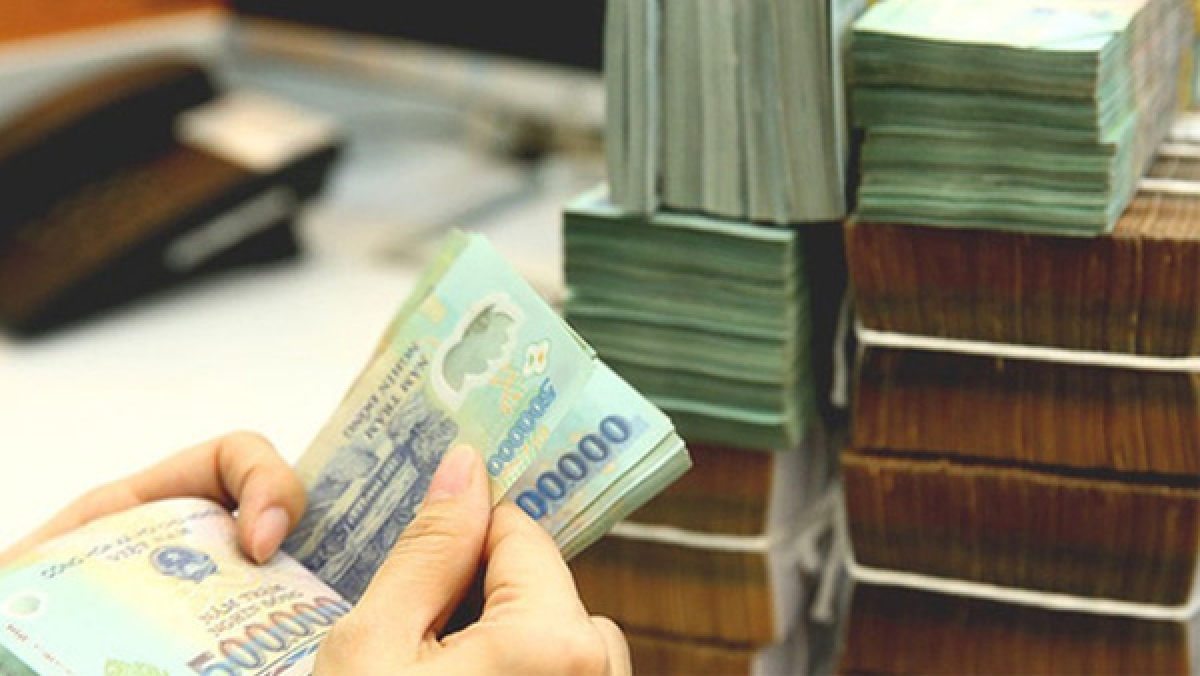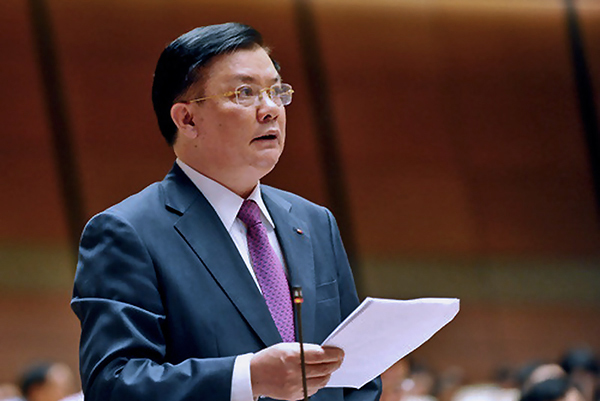He appreciated the financial sector’s budget managing operation which was shown through the increase in the state budget, the decrease in public debt, and the rise of budget for development investment.
 |
|
On behalf of the Party and State, Prime Minister Nguyen Xuan Phuc awarded the first-class Independence Medal to the financial sector. Photo: Nhan Dan newspaper
|
At the ceremony announcing the President’s appointment decision of the new Governor of the State Bank of Vietnam – Ms. Nguyen Thi Hong - Prime Minister Nguyen Xuan Phuc reminded the "top task" of the banking sector is to control inflation, stabilize the macro-economy, and stabilize the value of the Vietnam dong (VND).
Economist Tran Dinh Thien told VietNamNet: "The macroeconomic foundation so far has been solidly consolidated after very painful ups and downs."
This very plausible statement encapsulates consistent efforts to achieve the top target that is presented in all of the Government's annual Resolutions 01: “Focusing on macroeconomic stability; inflation control; and improvement ò productivity, quality, efficiency, competitiveness, internal capacity and autonomy of the economy”.
The spirit of macroeconomic stability has contributed to adjusting more prudent and stricter fiscal and monetary policies.
Revenue increases, debt decreases
Until 2016, owing to the expanded fiscal policy, the budget was only enough for recurrent expenditures to support the apparatus, while spending for investment and development relied on loans.
The expansionary fiscal policy contributed to pushing inflation: the consumer price index (CPI) reached 7.65% in the 2011-2015 period.
In that situation, in November 2016, the National Assembly Chairman signed to issue resolution No. 25/2016/QH14 with stricter spending requirements.
Accordingly, the financial sector must step by step restructure state budget expenditures in a positive direction, increasing the proportion of development investment spending, which must account for 25-26% of the total budget expenditure on average; reducing the proportion of recurrent expenditures to below 64% of total expenditure; giving priority to debt payment and national reserve spending. This resolution aims to implement the Party's Resolution 07-NQ/TW which was issued earlier in an effort to ensure national financial security. It was pressure on Finance Minister Dinh Tien Dung.
According to the Government’s report to the National Assembly at the last NA meeting, the rate of mobilization into the state budget reached 24.5% (the plan was 23.5%); the revenue-expenditure structure changed positively; the proportion of domestic revenue in total state budget revenue increased from 68% in the 2011-2015 to 80.9% in 2016-2019 and is estimated to reach 84.3% in 2020 (the target is 84-85%).
This year, spending on investment and development is estimated at 27-28% (the goal is 25-26%) while recurrent expenditures are estimated to fall to 60.5% (the target is less than 64%) while ensuring the source for adjustment of base salaries, and important tasks in the fields of national defense and security, social security and prevention of natural disasters and epidemics.
"Flexible, prudent" currency
On the monetary front, management has been flexible and prudent.
In response to the Prime Minister's request at the appointment ceremony, the Governor of the State Bank of Vietnam Nguyen Thi Hong pledged: “The financial sector will successfully complete the task of controlling inflation, stabilizing the macro-economy, ensuring the safety of the system... for the banking system to perform well the role of an effective capital channel of the economy."
The growth rate of the total means of payment is maintained at a lower rate compared to that of previous years. In the 2016-2019 period, this rate was 14.74%, lower than the average of 17.45% in the 2011-2015 period.
In addition, credit growth decreased gradually, while the GDP growth rate increased gradually and was higher than the 2011-2015 period. This shows that credit capital has been increasingly used effectively and distributed more appropriately. Credit structure changed positively, capital was focused on production and business areas, and outstanding loans for production and business sector accounted for over 80% of total outstanding loans.
Interest rates tended to decrease gradually and stabilize in the context of a rapidly changing world economy. The goldization and dollarization in the economy decreased significantly, the truth about the Vietnamese currency increased, and the national credit rating improved.
Obviously, the close and proactive coordination between monetary and fiscal activities has greatly contributed to macroeconomic stability. The average core inflation was well controlled, and kept relatively stable. In the 2016-2020 period, it is forecast to reach 1.81%, a sharp decrease compared to the previous one.
This foundation has helped people, businesses and foreign investors to confidently pour money in doing business, helping the economy grow.
Although the economy has been heavily affected by the epidemic this year, the average growth rate of the 5 years 2016-2020 is estimated at 5.9%, among the highest growth in countries in the region and the world.
Foundation set 3 years ago
 |
|
|
Dr. Tran Dinh Thien commented that the strong financial system contributed greatly to stabilizing the economy during the Covid-19 pandemic.
He said in 2017, 2018 and 2019, the time before the Covid-19 pandemic, the economy grew steadily.
“During these three years, the world was also in turmoil, especially the US-China conflict. China’s growth decline resulted in global decline and instability. In that context, we still sped up the opening and international integration. Thanks to the foundation created in those years, we are able to have the economy like today. Without the reserve of internal strength, the economy would have been difficult to withstand in 2020."
But that success is being challenged by the negative effects of the Covid-19 pandemic.
Fighting the epidemic and developing the economy
This July, during a meeting with the National Monetary and Financial Policy Advisory Council in the context of Covid-19 outbreaks, Prime Minister Nguyen Xuan Phuc affirmed: “Unlike other countries, our fiscal and monetary reserves are still quite large to stimulate aggregate demand and promote growth."
The Prime Minister's request to realize the dual goal of "preventing and combating epidemics, developing the economy and ensuring the stability of people's lives" is an imperative for monetary and financial policies.
According to the Ministry of Finance, many stimulus policies have been issued to timely assist people and businesses. The total amount of tax and budget revenue that has been extended, exempted or reduced is estimated at VND110 trillion.
Reporting to the National Assembly recently, Prime Minister Nguyen Xuan Phuc affirmed: "Vietnam continues to maintain and consolidate a stable macroeconomic foundation in the context of strong fluctuations in the world and region."
Those who have gone through periods of high inflation, skyrocketing prices, or seeing their money lose day by day can see the value of macro stability and the cost of keeping the value of the VND.
Macro stabilization is the foundation for development, the land to cultivate market confidence. Macroeconomic stabilization, inflation control, and strengthening the trust of people and businesses have been among the most successful economic policies in the past five years.
Tu Hoang

Ministry of Finance announces ten notable events of 2020
The Ministry of Finance has announced a list of ten notable events of Vietnam’s financial sector in 2020.

Pressure on the Finance Minister
As the holder of the keys of the national treasury, Finance Minister Dinh Tien Dung is facing great pressure.